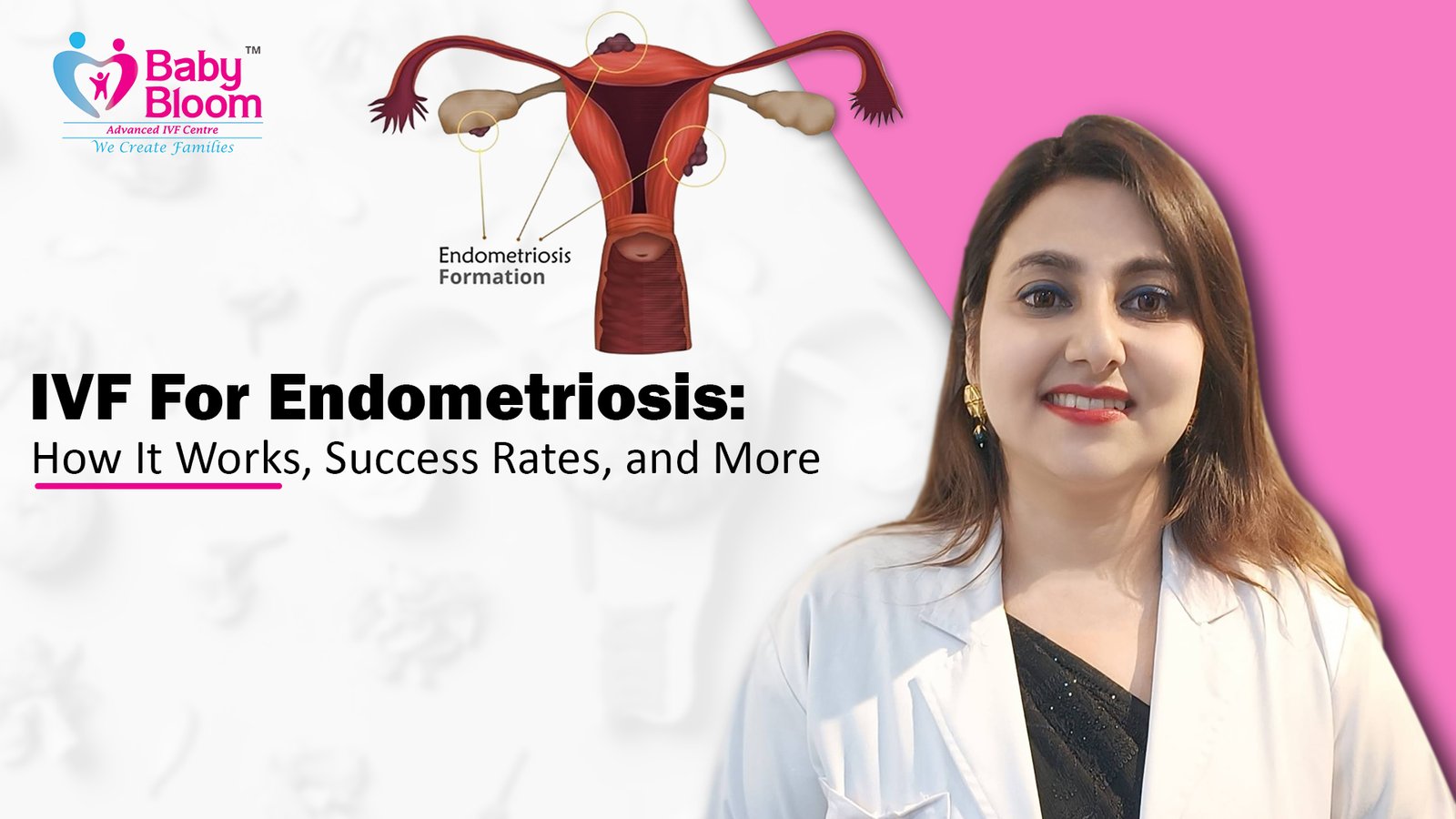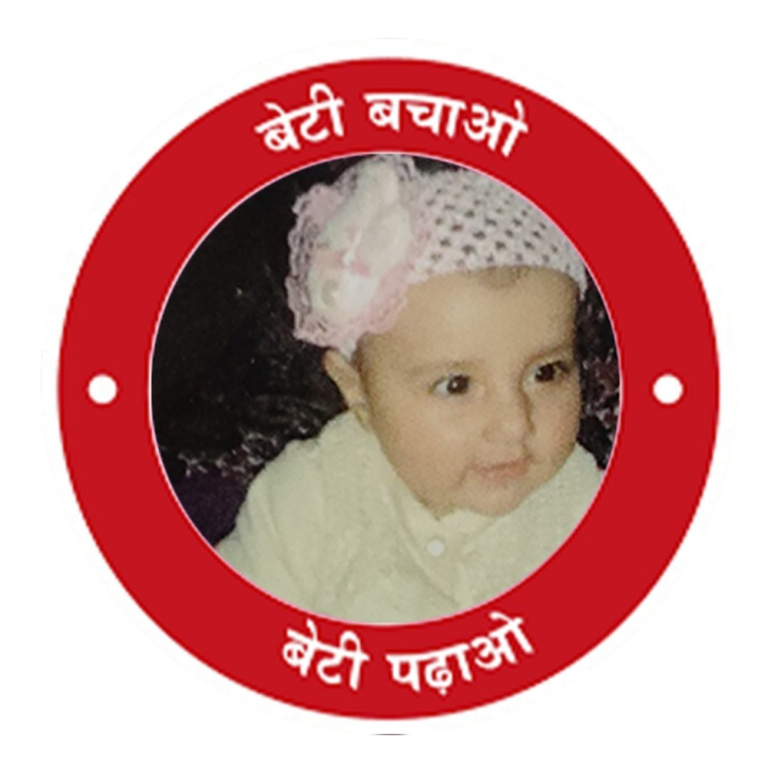Considerations and Potential Complications Related to IVF For Endometriosis
Endometriosis is a condition where tissue like the lining inside the uterus grows outside of it. This can cause pain, irregular periods, and make it difficult for some women to get pregnant. For women who have trouble getting pregnant due to endometriosis, In Vitro Fertilization (IVF) can be a helpful option. In this article, we’ll explain how IVF works for women with endometriosis, what the chances of success are, and other important information.

What Is the Impact of Endometriosis on Fertility?
Endometriosis can affect a woman’s ability to get pregnant in different ways. The tissue growth can cause scars and block the fallopian tubes, stopping the egg and sperm from meeting. It can also lead to inflammation, which causes pain and may lower the quality of the eggs or make it harder for a pregnancy to start in the uterus. Not everyone with endometriosis will have trouble getting pregnant, but it is a common issue for those with the condition. It’s estimated that about half of the women with endometriosis have difficulty conceiving.
How Does IVF Help in Endometriosis?
IVF is a type of treatment that helps with fertility problems. Here’s how it usually works for someone with endometriosis:
Preparation and Testing
Before starting IVF, doctors do a full evaluation, including tests to check the woman’s egg supply (both the quality and quantity of her eggs). This helps doctors plan the treatment and decide if the woman might need to use donor eggs
How Does IVF Help in Endometriosis?
Ovarian Stimulation
The ovaries are stimulated to produce several eggs using fertility drugs with hormones like follicle-stimulating hormone (FSH) and luteinizing hormone (LH). Doctors check the eggs’ development through blood tests and ultrasounds.
Egg Retrieval
When the eggs are ready, they are collected through a small surgery under anesthesia. A thin needle is used to gently remove the eggs from the ovaries.
Fertilization
The eggs are then fertilized in a lab. This can be done by mixing the eggs with sperm or by directly injecting a single sperm into each egg, a method called Intracytoplasmic Sperm Injection (ICSI).
Embryo Development
The fertilized eggs, now called embryos, are kept in the lab to grow for a few days. During this time, doctors may check them for genetic problems.
Embryo Transfer
One or more embryos are placed into the woman’s uterus. This is a quick and usually painless procedure.
Follow-up
About two weeks later, a pregnancy test is done to see if the treatment worked.
The success of IVF for women with endometriosis can vary and depends on several things:
- The woman’s age
- How severe the endometriosis is
- The specific fertility problems caused by endometriosis
In general, younger women have better chances of success with IVF.
Recent studies show mixed results. Some research says that women with endometriosis have similar success rates with IVF as women with other fertility problems. Other studies suggest that women with severe endometriosis may have lower success rates, especially those with a serious form called deeply infiltrative endometriosis.
Considerations and Potential Complications Related to IVF For Endometriosis
IVF can be physically and emotionally challenging, especially for women with endometriosis. The hormones used in IVF might cause more pain or discomfort.
Sometimes, doctors may recommend surgery before starting IVF. This surgery can help remove endometrial tissue, reduce inflammation, and improve the chances of getting pregnant. However, surgery isn’t always needed, and the decision depends on each person’s condition.
Despite these challenges, many women with endometriosis have successful pregnancies through IVF. It’s important to have a supportive medical team and a fertility specialist who understands endometriosis. Working closely with doctors and having emotional support can make a big difference.
Last Remarks:-
IVF is a good option for many women with endometriosis who are having trouble getting pregnant naturally. Although the process can be challenging and success isn’t always guaranteed, advances in fertility treatments are increasing the chances of success.
Every situation is different, so it’s important to talk to your doctor. They can help guide you through your options and support you in making the best decision for your family plans. With the right treatment, many women with endometriosis can achieve their dream of becoming mothers
Frequently Asked Questions - FAQs
1. What is the success rate of IVF with endometriosis?
The success of IVF for women with endometriosis depends on how severe the condition is, the woman’s age, and other factors. On average, the success rates are between 28% and 46%. Women who get treatment for their endometriosis before IVF usually have better success rates than those who do not treat the condition.
2. Does endometriosis affect egg quality?
Yes, endometriosis can lower egg quality. It can cause scar tissue in the ovaries and reduce blood flow, which decreases the oxygen supply. This can affect how well the eggs mature and lead to lower-quality eggs, making it harder to get pregnant, either naturally or through IVF.
Welcome to BabyBloom IVF, where your journey to parenthood is nurtured with care, expertise, and the latest advancements in fertility treatment. Located in the heart of Gurgaon, Babybloom IVF is the Best IVF Centre in Gurgaon & leading fertility center dedicated to helping couples achieve their dreams of starting or growing their families.
Contact Us
Address No.1 I, block, 189, near Baani Square, South City II, Sector 50, (Gurgaon) Gurugram, Haryana 122018
Address No.2 Babybloom IVF, Nursing Home, Civil Rd, Company Bagh, Rohtak, Haryana 124001

Brought Happiness to the world
@BabyBloom IVF All Rights Reserved @2025

